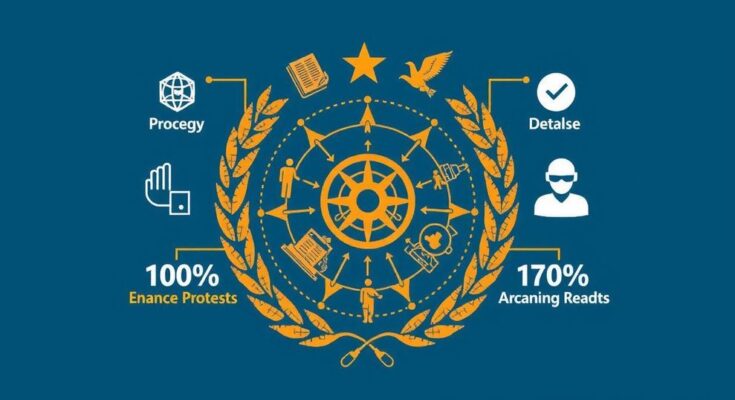ISHR calls for urgent state action to protect human rights defenders after a troubling report reveals severe threats and abuses against them, particularly in regions like Uganda and Angola. The report emphasizes the necessity of adherence to established guidelines and the immediate release of a long-awaited document on reprisals, highlighting the shrinking civic space for defenders across the continent.
In light of the Special Rapporteur on Human Rights Defenders’ recent report, ISHR emphasized the urgent need for proactive measures from states to safeguard human rights defenders. The report highlighted the alarming deterioration in the situation for defenders across Africa, showcasing complaints of arbitrary detentions, threats, and violence against marginalized communities, particularly LGBTQI+ individuals. Commissioner Rémy Ngoy Lumbu urged states to adhere to the African Commission’s Guidelines on Freedom of Association and Assembly, promoting their widespread dissemination and vigilant monitoring by civil society. ISHR further urged the Special Rapporteur to publish a long-anticipated report on reprisals, addressing the increasing dangers faced by defenders collaborating with regional human rights mechanisms. The statement emphasized the necessity for immediate action to combat human rights abuses, especially against environmental rights defenders in nations like Uganda, where violations have surged dramatically since 2021, prompting a call for joint visits to reinforce accountability. Civic space is shrinking woefully in countries like Angola, where defenders and journalists face severe repression. Incidents such as the arrest of activist Laurinda Gouveia underscore this bleak reality, alongside the chilling effects of the National Security Act. Similarly, in Côte d’Ivoire, the “Zero wubi” campaign has led to fierce assaults on LGBTQI+ defenders, forcing many into hiding. ISHR implores the Commission to remind states of their obligations to cultivate a supportive legal framework for defenders. Dr. Trésor Muhindo Makunya highlights these concerns through various channels, drawing attention to the relentless threats against human rights advocates in Burkina Faso and the pressing need for states to uphold international obligations. At a related event, calls for accountability regarding Israel’s actions in Gaza further underline the interlinkage between human rights advocacy and global political conflicts, fostering an atmosphere where broader participation and swift implementation of decisions are vital.
The article addresses the current climate for human rights defenders in Africa, particularly focusing on alarming trends of violence, repression, and diminishing civic space. It discusses actions taken by organizations like the ISHR and the Special Rapporteur, emphasizing the need for states to uphold obligations regarding human rights protections. Through their statements and reports, advocates illustrate the growing threats to defenders, especially those working on environmental rights and issues affecting marginalized communities.
The call for a renewed commitment to protecting human rights defenders in Africa is more urgent than ever. With increasing threats and a worrying trend of criminalization and violence against defenders, states must implement protective measures actively. Collaboration among governments, NGOs, and national institutions is crucial for ensuring a safe environment where defenders can operate freely and effectively work towards justice for all individuals.
Original Source: ishr.ch



